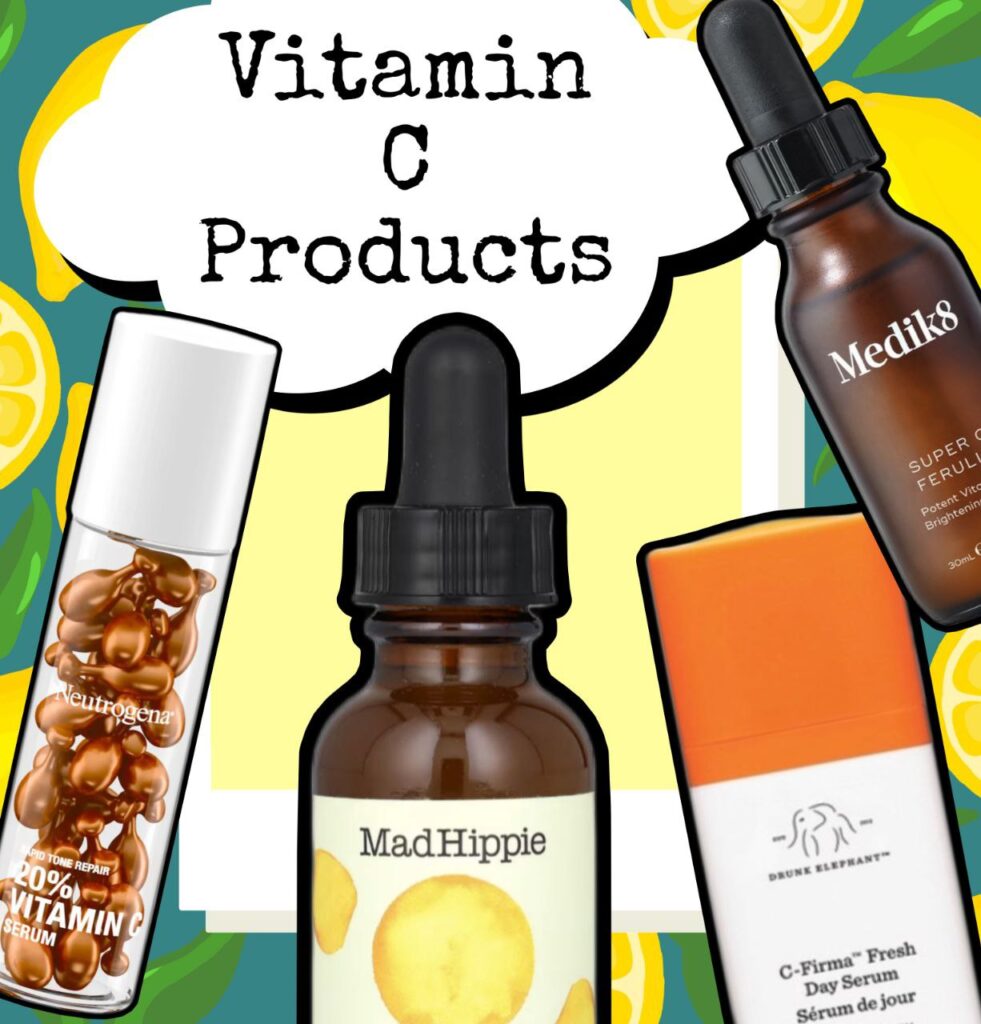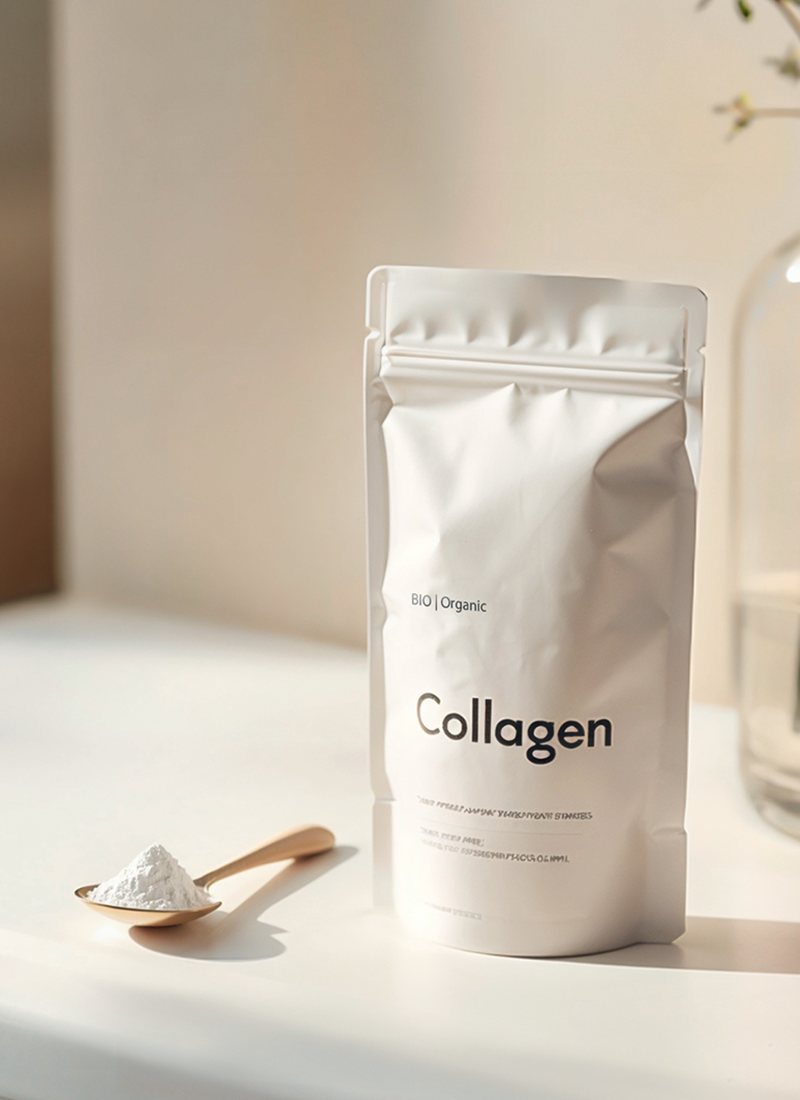Vitamin C, also known as ascorbic acid, is vital for health and well-being. This essential nutrient plays a significant role in our body, and vitamin C serum is highly valued in skincare. Despite dermatologists emphasizing its benefits, Vitamin C serum remains underrated among skin care practitioners. This is mainly due to the need for more widespread knowledge on the subject and clear answers to typical questions. Is vitamin C serum necessary for our skincare routine? What benefits does it offer, and how should we apply it?
If you’re seeking information on this topic, grab your favorite cup of tea and delve into the latest information I’ve gathered for you. In this comprehensive guide to vitamin C serum, I’ll cover all aspects of using vitamin C serum in skincare from both chemical and practical perspectives. We’ll discuss the benefits of vitamin C serum, application techniques, and challenges associated with its use, all supported by scientific evidence. By the time you finish reading this, you’ll have all the answers you were looking for.
Vitamin C – Chemical Brief on Functions and Benefits
As a chemistry major, I’ll start with a brief explanation of vitamin C. Vitamin C is an essential vitamin that the human body cannot naturally produce due to the lack of a specific enzyme, L-glucono-gamma lactone oxidase. Therefore, it needs to be obtained through diet, supplements, and skincare routines. Vitamin C is well-known for its antioxidant properties. Antioxidants are important for protecting the skin and body from oxidative damage caused by free radicals and toxins generated by sun exposure, pollution, and other environmental factors. This oxidative damage can speed up aging and lead to various skin issues. Vitamin C helps to mitigate this damage, making it a master antioxidant.
Oral Application of Vitamin C vs Vitamin C Serum?
Oral intake of vitamin C
If you’re just after the overall health benefits of Vitamin C, then you can opt for taking it orally as a supplement. By improving your overall health, you might see certain skin benefits as well, like enhancing its effectiveness in combating oxidative stress and supporting collagen synthesis. Yet, recent studies have shown that oral intake of vitamin C does not significantly increase its levels in the skin. Topical application of vitamin C is often recommended for skin benefits, as it can deliver higher concentrations directly to the skin.
Vitamin C Serum
Serum formulations can achieve higher-than-normal levels of vitamin C in the skin, enhancing its effectiveness in combating oxidative stress and supporting collagen synthesis. So, whether or not you already take vitamin C as a supplement, adding a vitamin C serum to your skincare routine can lead to better and more visible results for younger and healthier-looking skin in a shorter amount of time.

Why is Vitamin C Serum Beneficial for Your Skincare?
The benefits of adding vitamin C serum to your daily skincare routine are truly fantastic. From anti-aging effects related to a boost in collagen production to combating hyperpigmentation and providing protection against photo-aging – the advantages are numerous. Below, I have outlined the main benefits of vitamin C serum in more detail to help you understand how vitamin C serum works to benefit your skin. Additionally, ongoing studies are exploring its potential future benefits in skin aging and treating conditions such as rosacea.
1. Reduction of Hyperpigmentation & Skin Brightening
Vitamin C inhibits melanin production, the pigment responsible for skin color. This wonderful function makes Vitamin C a go-to depigmenting agent in your skincare routine. It helps reduce the appearance of dark spots, melasma, and hyperpigmentation, leading to a more even and brighter skin tone. By ‘brighter,’ I don’t mean a few shades lighter, so don’t worry, if you’re after tanned skin, it won’t get pale as a result of serum application. Incorporating vitamin C into a skincare routine can also result in significant improvements in skin radiance.
2. Anti-Aging
Vitamin C plays a key role in collagen synthesis for both your body and skin. By promoting collagen production, vitamin C helps reduce fine lines, wrinkles, and other signs of aging. The effectiveness of vitamin C in fighting aging is actively being explored worldwide. Vitamin C acts as a cofactor for the enzymes involved in collagen production, making it essential for maintaining skin elasticity and firmness. Collagen is a protein that gives structure to the skin, hair, nails, and connective tissues. Without adequate vitamin C, the body cannot effectively produce or maintain collagen, so it is an essential addition to your skincare routine for promoting younger and firmer skin.
3. Photo-ageing Protection
Vitamin C serum offers powerful protection against photo-aging, which is the premature aging of the skin due to excessive sun exposure. This type of aging leads to wrinkles, fine lines, and signs of aging faster than one would expect. By applying a layer of vitamin C serum, you can shield your skin from harmful UV rays, keeping it youthful and protected during sunny days. Vitamin C serum not only helps prevent damage but also aids in maintaining a healthy, vibrant complexion.
Formulation Variability of Vitamin C
Reading the above benefits you might wonder why you haven’t heard about the importance of vitamin C before. Well, the hype around vitamin C serum has only grown in the last five years. Although studies on its benefits for skin were published 30 years ago, it took scientists many years to develop the best-working chemical formulations of the vitamin C molecule.
As a result, Vitamin C is now available on the market in various forms, like serums, creams, patches, etc. Each chemical formulation has distinct properties and benefits. The most common forms include ascorbic acid, sodium ascorbyl phosphate, ethyl ascorbic acid, and magnesium ascorbyl phosphate. If you have dry or sensitive skin, it might be important to go deeper into formulation and concentration variability to avoid irritating your skin with a new concentrated product. Here is a quick guide about the main formulations:
Ascorbic Acid
Ascorbic acid is the purest and most extensively studied form of vitamin C. It has the strongest antioxidant properties and is highly effective in collagen synthesis and skin brightening. However, ascorbic acid is water-soluble and unstable, making it challenging to formulate into skincare products. Therefore, it is important to keep the bottle in a dark place. It requires a low pH to penetrate the skin effectively, which can cause irritation for some individuals with sensitive skin types.
Sodium Ascorbyl Phosphate
Sodium ascorbyl phosphate is a more stable derivative of vitamin C, often found in budget-friendly skincare products. It retains some antioxidant properties and is effective in reducing pigmentation and wrinkles. Interestingly, it also shows potential in treating acne due to its antimicrobial effects and ability to reduce sebum oxidation. Therefore, it might be a good option for oily and acne-prone skin types.
Ethyl Ascorbic Acid
Ethyl ascorbic acid is a lipid-soluble form of vitamin C, making it more stable and easier to formulate into skincare products. It penetrates the skin effectively and converts to ascorbic acid once inside the skin. This form is less irritating and shows comparable benefits to pure ascorbic acid in terms of antioxidant properties, collagen synthesis, and skin brightening. This form with a lower concentration is a good starting point for sensitive skin types.
Magnesium Ascorbyl Phosphate
Magnesium ascorbyl phosphate is another derivative known for its stability and gentle nature. Studies have shown that this formulation has a hydrating effect on the skin and might be a good option for dry skin. However, it is less effective in penetrating the skin and has lower efficacy in terms of antioxidant properties and collagen synthesis compared to other forms.
More scientific information regarding the functions, chemical formulation, and its benefits can be taken from the following medical studies:
Popular Vitamin C Products
Several vitamin C products are popular in the skincare market, each with unique formulations designed to enhance stability and efficacy. Some of the well-regarded products include:

-
SkinCeuticals C E Ferulic: This is the first and one of the best vitamin C products on the market. This product combines ascorbic acid with vitamin E and ferulic acid to enhance stability and provide additional antioxidant benefits. It’s a favorite among many users despite its potential for irritation in some individuals. However, this option is quite pricey.
-
Klairs Freshly Juiced Vitamin Drop: Contains 5% ascorbic acid, a good concentration for active skincare routine users. A budget-friendly option from the Korean market, great for normal and oily skin types. However, for sensitive skin types, I wouldn’t recommend it as a first vitamin C serum.
-
Klairs Freshly Juiced Vitamin Drop: Contains 5% ascorbic acid, a good concentration for active skincare routine users. A budget-friendly option from the Korean market, great for normal and oily skin types. However, for sensitive skin types, I wouldn’t recommend it as a first vitamin C serum.
-
Medik8 Super C Ferulic: Utilizes ethyl ascorbic acid, a stable vitamin C derivative, which is less irritating and provides long-lasting benefits. A good option for sensitive skin types.
-
Neutrogena Rapid Tone Repair 20% Vitamin C Brightening Serum Capsules: One of the best drugstore options with a great chemical formulation and high concentration of vitamin C. Capsules make it a great format for exact dosage and traveling.
How to Implement Vitamin C Serum into Your Skincare Routine
If you decide to begin with this wonderful beauty product, here are the main tips for the best results:
- Depending on your skin type, it might be a safe move to start using a new product with a low concentration of vitamin C. Consider purchasing products with a low concentration first for a smooth experience.
- The best time to use vitamin C is during your morning skincare routine. You can use it during your evening routine if your evening routine does not include retinol. It is not recommended to mix these two products, as it may increase the risk of irritation.
- Apply vitamin C in the morning on cleansed skin, starting with 2-3 drops daily. After applying, continue with serum/moisturizer and sunscreen.
- If your skin reacts with irritation during the first application, mix vitamin C serum with your toner or moisturizer during the first few weeks. This will help your skin get used to the new product. After some time, you can stop mixing it with your moisturizer or toner and apply it as mentioned earlier.
- After applying sunscreen, you can continue with your makeup if needed.
My detailed AM skincare routine I describe here. You may also like the following beauty articles:
Things to Consider when Applying Vitamin C Serum
Vitamin C, particularly in its pure form as ascorbic acid, has some application nuances that must be considered for safe, smooth and effective application.
1. Absorption & Storage Heads up:
The stability of Vitamin C is well-known to be easily affected, especially when it comes into contact with light, air, and heat. That’s why many Vitamin C skincare products are packaged in dark glass bottles and should be stored away from direct light to maintain their effectiveness. Also, Ascorbic acid is not lipid-soluble, making it difficult to penetrate the skin’s lipid barrier. It requires a low pH for optimal absorption, which can cause irritation in some individuals. Therefore, starting slow with a low-concentration vitamin C products would be ideal to see how your skin reacts to them, before increasing the intensity.
2. Formulation Sensitivity vs Price
It’s important to be aware that effective vitamin C formulations face challenges with stability and absorption, often resulting in complex and costly products. Therefore, you may need to be prepared to pay a bit more for more advanced formulas. Just be sure to check the serum’s form, concentration, and price. In some cases, the higher cost may be due to the brand, so ensure that you select products where the price is higher because of the ingredients that directly affect the benefits you’ll receive.
3. Combining Vitamin C with Other Ingredients
When using vitamin C in skincare, it’s important to consider how it interacts with other ingredients. For example, combining vitamin C with benzoyl peroxide or copper peptides can cancel out its benefits. Also, using vitamin C with other potential irritants, such as retinol, may increase the risk of irritation. Therefore, it’s recommended to carefully layer and apply these products to maximize the benefits of vitamin C while minimizing potential adverse effects. An important rule to remember is to use vitamin C in the morning and retinol (vitamin A) in the evening for your skincare routine.
The Verdict: Is Vitamin C Worth the Hype?
Absolutely! Vitamin C remains a cornerstone ingredient in skincare due to its comprehensive benefits, from antioxidant protection and collagen synthesis to brightening and anti-aging effects. While it may not be suitable for everyone due to potential irritation and formulation challenges, its benefits are undeniable. For those who can tolerate it, vitamin C can be a powerful addition to their skincare regimen.
In summary, vitamin C is a multifaceted nutrient essential for maintaining skin health and overall well-being. Its antioxidant properties, role in collagen synthesis, and ability to address various skin concerns make it a valuable ingredient. However, understanding its limitations and proper use is crucial to harness its full potential.





I just recently got a new face serum but will have to try vitamin C serum next time I get to the store. Thanks for sharing all of these great details!
Hi Tracy!
Vitamin C serum is a great choice. I hope you love it as much as I do!
Vitamin C serum benefits is a game-changer for anyone looking to elevate their skincare! Thanks for shedding light on its powerful antioxidant properties and diverse skin benefits.
I’m glad you found this post helpful!
Vitamin C serum really is amazing for the skin.
Great post! With so many different skin care serums available it’s overwhelming to know which ones we actually should be using. It sounds like Vitamin C is at the top of the list of Must Use. I also appreciate you telling us how/when to apply
Thanks, Katie! Absolutely, Vitamin C is a must-have skincare product.
Let me know if you have any more questions or need further recommendations!
What an insightful and comprehensive analysis of Vitamin C! It’s clear that Vitamin C is indeed a powerhouse ingredient in skincare, offering numerous benefits from antioxidant protection to brightening and anti-aging effects. I am still pretty new to the world of skincare so I love reading a good article on different types of products and their benefits
This is such an insightful and informative post. I am not currently using Vitamin C serum but I’m about to buy some thanks to this post! Thanks for sharing!